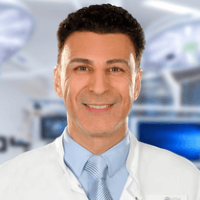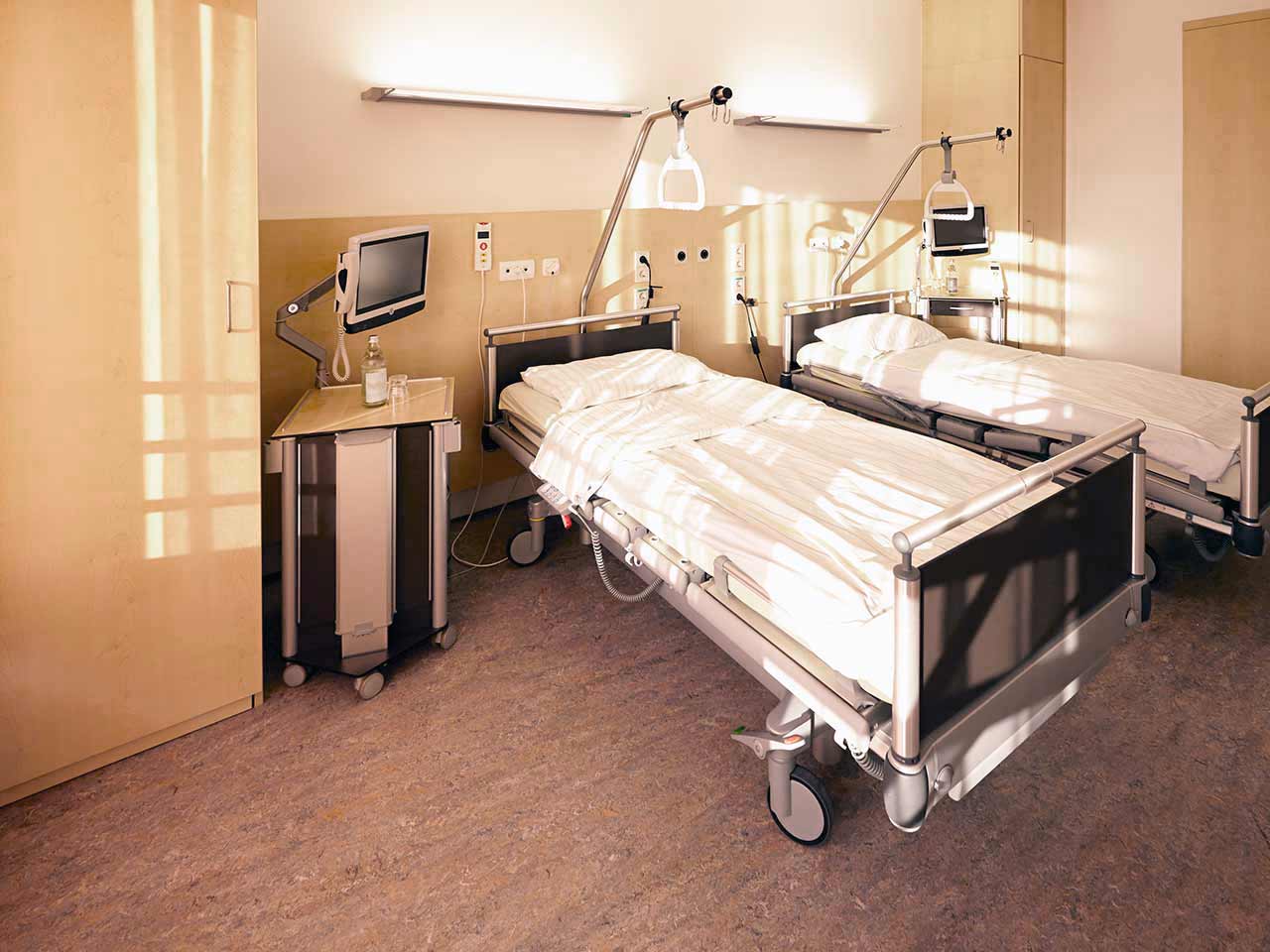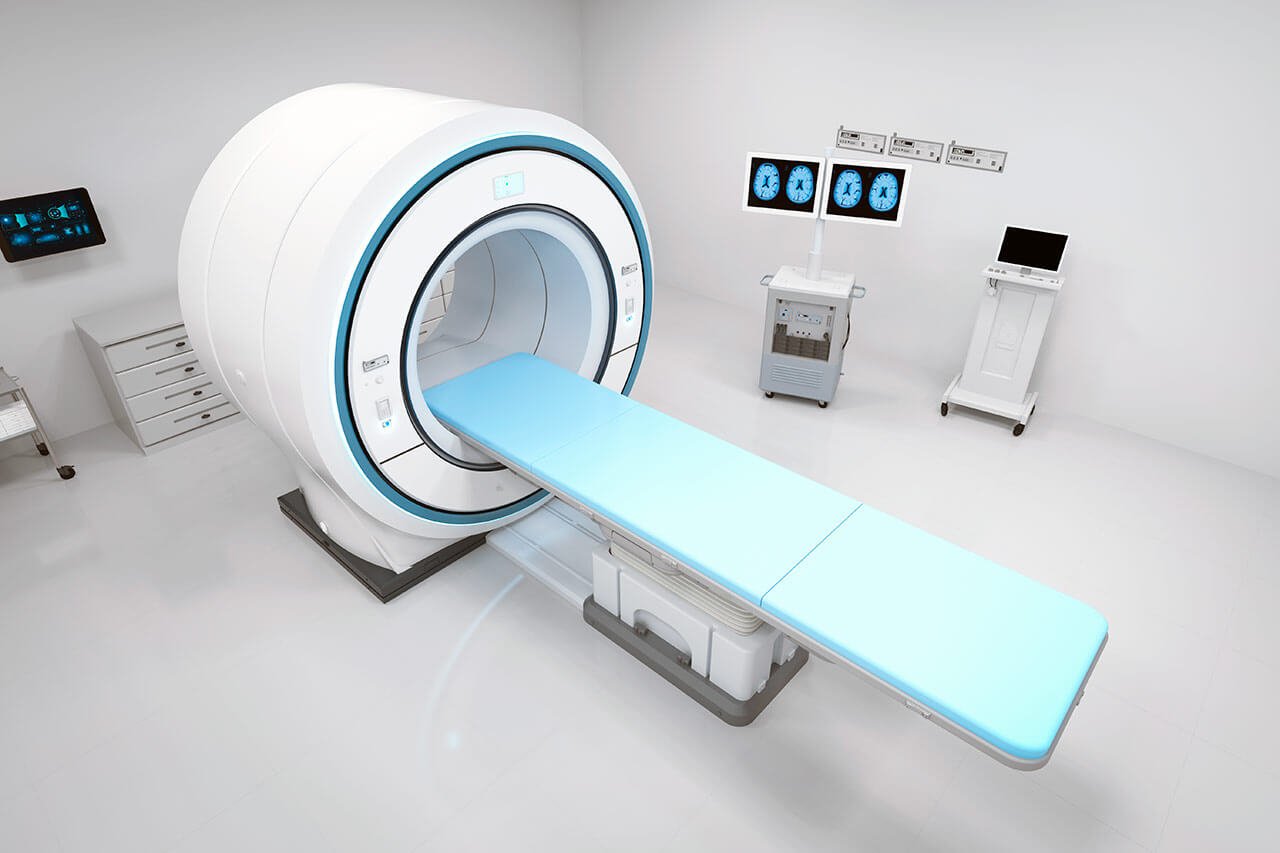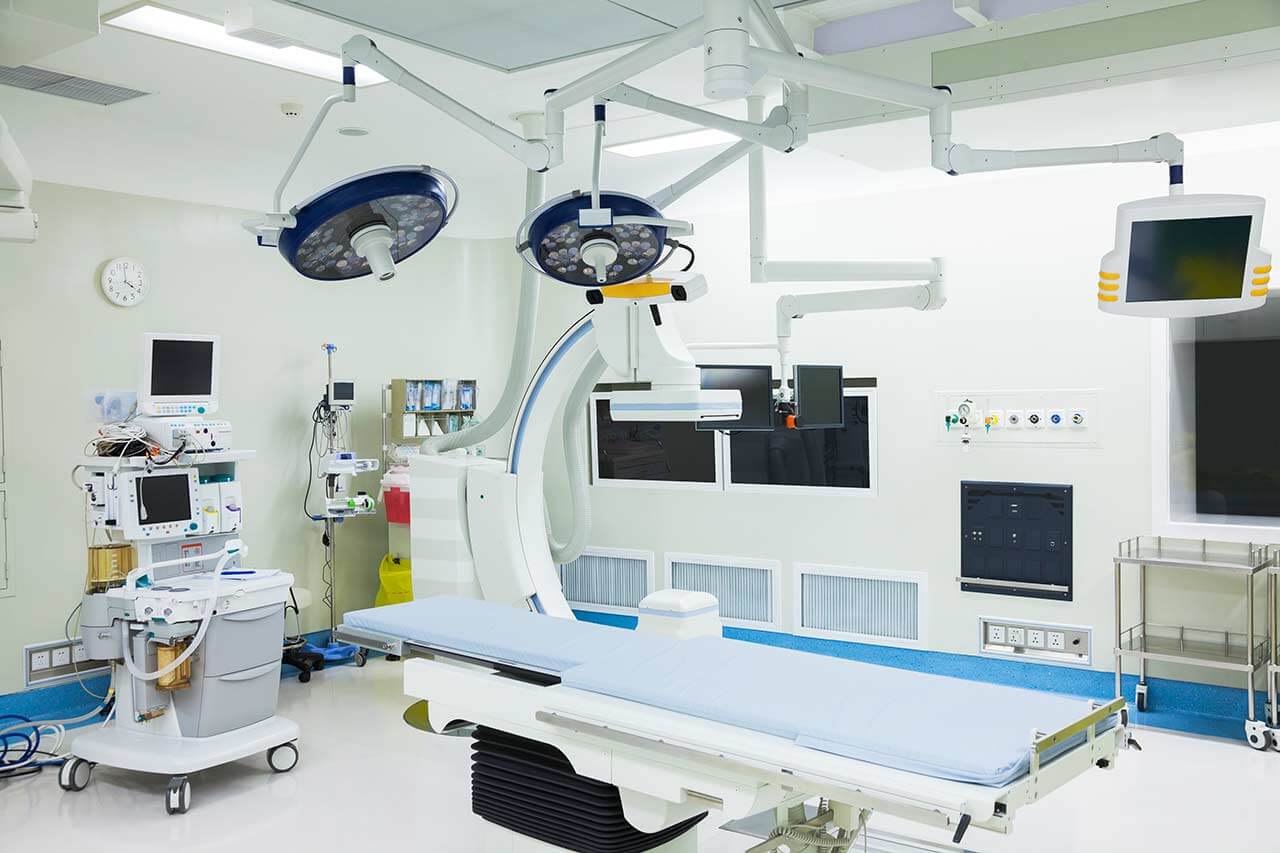
The program includes:
- Initial presentation in the clinic
- clinical history taking
- review of medical records
- physical examination
- laboratory tests:
- complete blood count
- general urine analysis
- biochemical blood test
- inflammation markers (CRP, ESR)
- blood coagulation analysis (aPTT, PT, INR)
- pelvic ultrasound
- gynecological examination:
- colposcopy
- vaginal swab
- transvaginal ultrasound
- CT/MRI of the pelvic organs (if clinically indicated, additional cost is 650/1200 €)
- diagnostic puncture (if clinically indicated, additional cost is 600 €)
- nursing services
- services of all leading experts
- explanation of individual treatment plan
Required documents
- Medical records
- Ultrasound scan (if available)
Service
You may also book:
 BookingHealth Price from:
BookingHealth Price from:
About the department
The Department of Gynecology, Obstetrics and Mammology at the ViDia Hospital Karlsruhe carries out the diagnostics and treatment of the full range of diseases of the female reproductive system, provides comprehensive care and monitoring for the future mother and child during pregnancy and after childbirth, and delivers babies in comfortable delivery rooms. Special attention in gynecology is paid to the treatment of endometriosis, uterine myomas, urinary incontinence, pelvic organ prolapse, and female reproductive cancers, including uterine, ovarian, and vulvar cancers. The department's breast specialists provide comprehensive medical care for women with breast cancer. More than 1,600 babies are born in the department's delivery rooms annually. All the necessary resources are available here for safe childbirth in comfortable conditions for women. It is worth noting that the department has been awarded prestigious quality certificates by the German Cancer Society (DKG) for the treatment of gynecologic malignancies, cervical dysplasia, and breast cancer. The treatment rooms and operating rooms at the medical facility are equipped with advanced technology, thanks to which doctors can perform minimally invasive treatment through small incisions (only 1-2 cm) or natural openings (transvaginal approach). Sparing treatment allows doctors to minimize the risks of complications during the surgical intervention and in the postoperative period, relieve pain, and shorten a hospital stay. The team of the department's doctors makes every effort to provide each patient with personalized, top-class treatment. The Head Physician of the department is Dr. med. Oliver Tomé.
An important area of the department's specialization is the treatment of cancer affecting the female reproductive system, including uterine, cervical, ovarian, and vulvar cancers. Women with cancer diagnoses receive medical care at a specialized center certified by the German Cancer Society (DKG). This certification signifies the provision of high-quality medical services using the very latest treatment methods. The doctors at the center follow a multidisciplinary approach, so the patients receive medical care from a large team of specialists consisting of gynecologists, oncologists, radiation therapists, radiologists, and psycho-oncologists. Treatment can be provided both on an inpatient and outpatient basis, with surgical interventions most often requiring a hospital stay, while chemotherapy or hormone therapy is performed on an outpatient basis.
The most effective treatment method for gynecologic cancer is surgical resection of the malignant tumor. In advanced stages, the removal of the affected organs may be necessary as well. For example, for patients with ovarian cancer, gynecologists perform laparoscopic surgery to remove the ovary from one or both sides, while for cervical cancer treatment, the department's doctors use conization of the cervix or perform laparoscopic interventions. Patients with uterine cancer may undergo laparoscopic surgery with a transvaginal approach to remove the uterus and ovaries (hysterectomy with adnexectomy), total laparoscopic hysterectomy with adnexectomy, or open surgery to remove the uterus, ovaries, and affected lymph nodes. As a rule, surgery is supplemented with chemotherapy, radiation therapy, hormone therapy, immunotherapy, and other conservative treatment methods. It is important that the treatment regimen for each patient be elaborated at an interdisciplinary tumor board. Such an approach allows the doctors to choose the most effective, but at the same time, sparing treatment methods. Experienced psycho-oncologists also work with patients throughout the therapeutic process. Their task is to help women accept their diagnosis and motivate them to fight against oncopathology in order to achieve optimal results.
In January 2004, the Breast Cancer Center was established in the department. The center has been successfully certified by the German Cancer Society (DKG) for many years in a row. The doctors at the center cooperate with colleagues from other departments of the hospital, including gynecologists, oncologists, radiologists, and radiation therapists. Highly qualified doctors with vast clinical experience take care of breast health. Patients undergoing their treatment at the center receive medical care both on an inpatient and outpatient basis. The first stage of the therapeutic process is a comprehensive diagnosis, based on the results of which an individual treatment regimen is elaborated, taking into account the stage of the disease, the specifics of its course, the age of the patient, and her general health condition. In most cases, the first-line treatment is a surgical procedure. The therapeutic protocol also often includes chemotherapy, radiation therapy, immunotherapy, antibody therapy, etc. For women undergoing mastectomy (breast removal surgery) due to breast cancer, the department's plastic surgeons perform breast reconstruction using silicone implants or autologous tissues. Reconstructive plastic surgery after breast removal plays an important role because women may develop complexes about their appearance or depressive states.
The department has 3 modern delivery rooms that meet current international medical standards. Each delivery room is equipped with comfortable birth chairs and pools for water births. The delivery rooms also have a special chair, a gymnastic ball, wall bars, and other aids to relieve pain during contractions and facilitate natural childbirth. For pain relief during childbirth, expectant mothers are also offered homeopathy, aromatherapy, and relaxation baths. The department performs C-sections using the Misgav Ladach method, if necessary. After childbirth, obstetricians and nurses provide support for breastfeeding and care for both mother and baby. Shared accommodation rooms are also available in the department, as the first hours after childbirth are particularly important in forming a bond between the mother and baby. Postnatal care is an integral part of the department's work. The doctors also hold post-discharge counseling, including breastfeeding support, monitoring postpartum recovery, and monitoring the baby's development during the first year of life. The department's team of obstetricians and nurses strives to make such an important event as the birth of a child as pleasant and comfortable as possible.
The department's range of medical services includes:
- Gynecology
- Diagnostics and treatment of malignant diseases of the female reproductive system
- Uterine cancer
- Cervical cancer
- Ovarian cancer
- Vulvar cancer
- Diagnostics and treatment of benign diseases of the female reproductive system
- Ovarian and uterine cysts
- Uterine fibroids
- Endometriosis
- Cervical dysplasia
- Urinary incontinence
- Pelvic organ prolapse
- Diagnostics and treatment of malignant diseases of the female reproductive system
- Mammology
- Diagnostics and treatment of malignant breast diseases
- Breast cancer
- Diagnostics and treatment of benign breast diseases
- Cysts
- Fibroadenomas
- Lipomas
- Mastopathy
- Diagnostics and treatment of malignant breast diseases
- Obstetrics
- Comprehensive pregnancy management in all trimesters
- Childbirth: natural birth, including in water, and C-section
- Postnatal care for mother and baby
- Other medical services
The department's therapeutic options include:
- Conservative treatment
- Drug therapy for benign diseases
- Systemic treatment for malignant diseases: chemotherapy, hormone therapy, antibody therapy, immunotherapy, and radiation therapy
- Surgical treatment
- Surgical interventions for benign and malignant gynecologic diseases
- Hysteroscopy
- Hysterectomy, including laparoscopic supracervical hysterectomy and total laparoscopic hysterectomy
- Ovariectomy
- Adnexectomy
- Vulvectomy
- Lymph node dissection
- Conization of the cervix
- Uterine artery embolization
- Resection of malignant breast tumors, mastectomy (breast removal surgery), and reconstructive plastic surgery using silicone implants and autologous tissues
- Surgical interventions for benign and malignant gynecologic diseases
- Other treatment methods
Curriculum vitae
Higher Education and Professional Career
- 1990 - 1997 Medical studies, Eberhard Karl University of Tuebingen.
- 1998 Thesis defense, Faculty of Medicine, Eberhard Karl University of Tuebingen.
- 1997 - 2002 Internship, Department of Gynecology, University Hospital Tuebingen.
- 2002 - 2005 Physician and Acting Head, Department of Gynecology, University Hospital Tuebingen.
- 2005 - 2007 Head Physician, Marienhospital Stuttgart.
- 2006 Optional training in Special Obstetrics and Perinatal Medicine.
- 2007 Optional training in Special Gynecologic Surgery.
- 2007 Acting Head, Department of Gynecology, University Hospital Mannheim.
- 2007 - 2008 Deputy Head, Department of Gynecology, University Hospital Mannheim.
- Since 2008 Head Physician, Department of Gynecology, Obstetrics and Mammology, ViDia Hospital Karlsruhe.
Qualifications
- Board certification in Gynecology and Obstetrics.
- Specialization in Gynecologic Oncology.
- Specialization in Special Obstetrics and Perinatal Medicine.
- Specialization in Special Gynecologic Surgery.
- Specialization in Tumor Drug Therapy.
- Specialization in Palliative Care.
- Specialization in Breast Surgery.
- Specialization in Minimally Invasive Surgery (MIC II Certificate).
Membership in Professional Societies
- German Cancer Society.
- Working Group on Gynecologic Oncology of the German Society for Gynecology and Obstetrics.
- German Society for Senology.
- German Society for Gynecology and Obstetrics.
- Federal Association of Head Obstetricians and Gynecologists (BLFG).
- Professional Association of Gynecologists in Baden-Wuerttemberg.
Photo of the doctor: (c) ViDia Kliniken Karlsruhe
About hospital
The ViDia Hospital Karlsruhe is a modern medical facility with a rich history and traditions. The medical complex is an academic hospital of the University of Freiburg, granting patients access to advanced university medicine and the very latest therapeutic developments. The hospital first opened its doors in 1851 and, since then, has maintained a leading position in the European medical arena. The health facility offers a state-of-the-art technical base, comfortable infrastructure, and highly qualified doctors. All this allows the hospital to provide patients with top-class healthcare in accordance with modern standards. In addition, the hospital's team honors Christian traditions, emphasizing a humane attitude towards the patient and striving to provide understanding and support.
The hospital employs a large team of specialists, consisting of over 3,200 staff members, including 400 highly qualified physicians. The medical team admits more than 50,000 inpatients every year, and about 100,000 patients are diagnosed and treated on an outpatient basis or in a day hospital. More than 3,000 babies are born in the maternity rooms of the Department of Obstetrics every year. More and more patients, including those from abroad, come to the hospital for medical care annually.
The hospital has 24 specialized departments with 25 highly certified, narrowly focused centers integrated into them. A large Cancer Center certified according to the German Cancer Society (DKG) standards also operates here. Thus, one of the main clinical focuses of the medical complex is cancer treatment. The hospital also excels in other specialties, such as general surgery, abdominal surgery, thoracic surgery, orthopedics, cardiology, endocrinology, otolaryngology, pulmonology, gastroenterology, and others. There are 37 operating rooms available here for surgical treatment, the equipment of which corresponds to the highest technical level. Priority is given to performing minimally traumatic operations using minimally invasive, endoscopic, arthroscopic, and endovascular techniques.
The ViDia Hospital Karlsruhe enjoys a high reputation in Germany and far beyond its borders. The health facility successfully combines innovative medicine with Christian values, thanks to which the patient receives not only effective treatment but also care, understanding, and support.
Photo: (с) depositphotos
Accommodation in hospital
Patients rooms
The patients of the ViDia Hospital Karlsruhe stay in comfortable single and double rooms with modern design. Each patient room has an ensuite bathroom with a shower and a toilet. The standard room furnishings include an automatically adjustable bed, a bedside table, a table and chairs, a wardrobe, a telephone, a TV, and a radio. Wi-Fi access is also available in the patient rooms.
Patients can also be accommodated in enhanced comfort rooms. These rooms are very spacious and are additionally equipped with a safe, a mini-fridge, and upholstered furniture.
Meals and Menus
The patients of the hospital are offered three tasty meals a day: breakfast is served buffet-style, and there are several set menus to choose from for lunch and dinner.
If, for some reason, you do not eat all of the foods, you will be offered an individual menu. Please inform the medical staff about your dietary preferences prior to treatment.
Further details
Standard rooms include:
![]() Toilet
Toilet
![]() Shower
Shower
![]() Wi-Fi
Wi-Fi
![]() TV
TV
Religion
There are several chapels on the territory of the hospital. Regular Catholic and evangelical services are held here. Patients can also visit one of the chapels at any time to find a quiet place to pray, if desired.
Accompanying person
Your accompanying person may stay with you in your patient room or at the hotel of your choice during the inpatient program.
Hotel
You may stay at the hotel of your choice during the outpatient program. Our managers will support you for selecting the best option.





